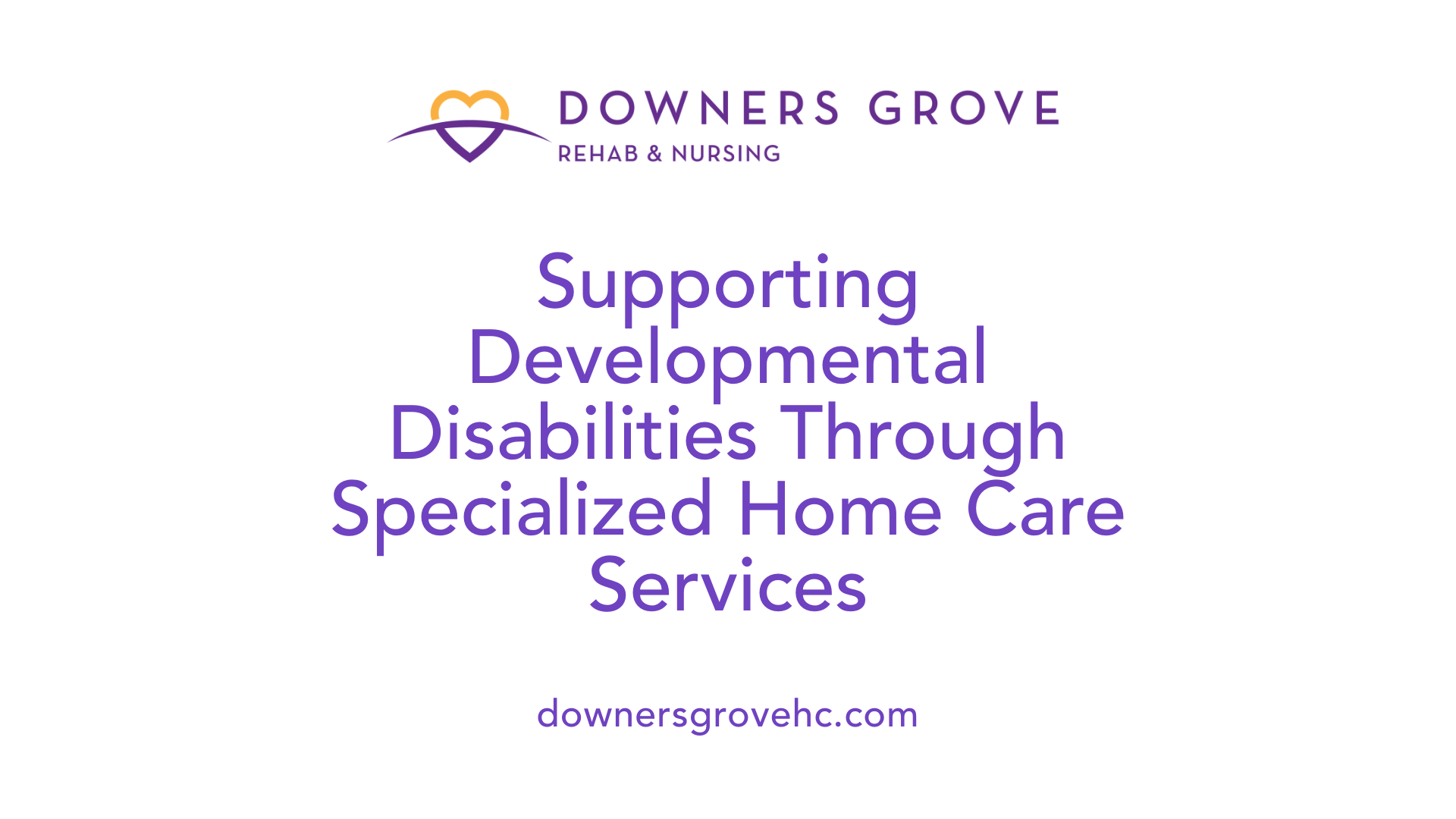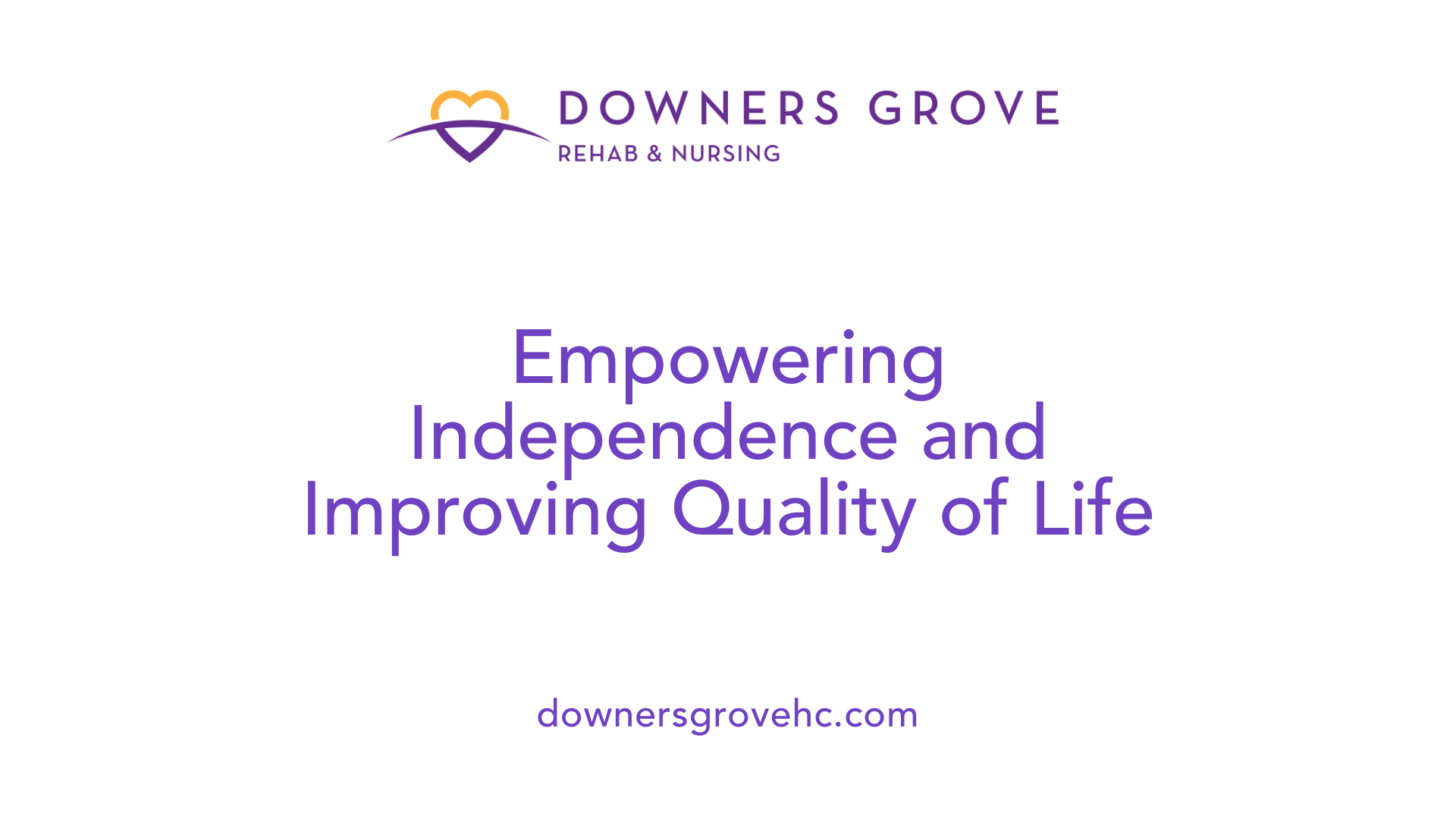Exploring the Intersection of Home Health Care and Developmental Disabilities
Home health care has emerged as a critical support system for individuals with developmental disabilities and their families. This personalized care approach not only addresses the unique needs of these individuals but also fosters independence, well-being, and community integration. As demand for such services grows, understanding the types, benefits, and systemic influences on home health care for developmental disabilities becomes increasingly important. This article dives into the multifaceted environment of home health care, exploring its impact and the continuing challenges faced by caregivers and those they serve.
The Role of Home Health Care in Supporting Developmental Disabilities

What is the role of home health care for individuals with developmental disabilities?
Home health care plays a crucial role in supporting individuals with developmental disabilities by delivering specialized services directly in their homes. This model of care enables tailored support that addresses the unique needs of each individual, enhancing their quality of life and promoting independence.
Professional caregivers assist individuals with various tasks, such as bathing, dressing, and meal preparation. This support is essential because many individuals with developmental disabilities struggle with independent living tasks.
Moreover, caregivers contribute to maintaining a healthy lifestyle by guiding recipients on diet and exercise. Emotional support from caregivers further helps reduce feelings of isolation, boosting self-esteem, and fostering social interactions.
Additionally, home health care provides much-needed respite for family caregivers, who often face increased stress due to their responsibilities. This allows family members to recharge while ensuring their loved ones are well cared for.
Overall, these services foster a nurturing environment that empowers individuals with developmental disabilities to lead fulfilling lives in a familiar and supportive setting.
Enhancing Quality of Life and Independence Through Home Health Care

How does home health care improve quality of life and independence for adults with developmental disabilities?
Home health care significantly enhances the quality of life and independence for adults with developmental disabilities by providing personalized support tailored to their unique challenges. Caregivers focus on developing essential life skills, promoting self-care, and enabling active participation in community activities. This targeted approach fosters a sense of autonomy, which is vital for individuals who may often feel marginalized or dependent.
Recognizing mental health is a critical aspect of this process. Individuals with developmental disabilities face heightened risks of conditions like depression and anxiety. Caregivers trained to communicate effectively can help identify and address these mental health concerns, ensuring that symptoms are not overlooked. This comprehensive support can lead to a holistic improvement in both physical and emotional well-being.
By combining assistance with daily living tasks, such as grooming and meal preparation, with emotional support, home health care ensures that individuals with disabilities feel valued and supported. Such assistance helps bridge the gap in areas where they may struggle, thus significantly improving their overall life satisfaction and independence.
| Benefits of Home Health Care | Improvement in Quality of Life | Promotion of Independence |
|---|---|---|
| Personalized support | Enhanced mental well-being | Encourages self-care and active community engagement |
| Assistance with daily living tasks | Increased autonomy and self-esteem | Development of essential life skills |
| Mental health support | Holistic health improvements | Access to emotional support and companionship |
Variety of Services Within Home Health Care

What types of services are available through home health care for individuals with developmental disabilities?
Home health care for individuals with developmental disabilities offers a diverse range of services tailored to their unique needs. Key offerings include:
Daily Living Assistance:
- Personal Care: Help with bathing, dressing, grooming, and personal hygiene.
- Meal Preparation: Caregivers assist in planning and preparing nutritious meals to promote a healthy diet.
Therapeutic Services:
- Skilled Nursing: Professional nursing care to manage health issues related to developmental disabilities.
- Physical, Occupational, and Speech Therapy: Targeted therapeutic interventions to enhance mobility, daily functioning, and communication skills.
Companionship and Behavioral Support:
- Caregivers offer companionship, fostering emotional well-being and social interaction, which are crucial for maintaining positive mental health.
Respite Care:
- Planned breaks for family caregivers, relieving stress and allowing them time to recharge while ensuring their loved ones are well cared for.
Individualized Care Plans:
- Tailored support aligns with each person's strengths and interests, ensuring that care is respectful and empowering.
Home health care not only promotes autonomy and quality of life for individuals but also serves as a cost-effective alternative to institutional care.
Emotional and Physical Support from Caregivers

What emotional and physical support do caregivers provide to individuals with developmental disabilities?
Caregivers play a critical role in the lives of individuals with developmental disabilities by providing essential emotional and physical support.
Emotional Support
Emotional support is paramount, as caregivers offer companionship and reassurance, helping individuals navigate the complexities of their emotions.
- They create nurturing environments that reduce anxiety and frustration.
- Encouraging social interactions is another vital aspect, enabling individuals to develop meaningful relationships.
This support not only enhances well-being but also fosters a sense of belonging and acceptance for those with developmental disabilities.
Physical Care Assistance
On the physical side, caregivers assist with daily living tasks, such as bathing, dressing, and meal preparation.
- They monitor health and provide guidance on maintaining a healthy lifestyle, which can often be challenging for their clients.
- Importantly, caregivers promote autonomy by encouraging individuals to make personal choices in their care routines.
Despite the positive impact of their roles, caregivers frequently face high levels of stress and can experience health issues as a result. Therefore, it is essential to ensure they have the necessary support networks, access to respite care, and training programs, which all help maintain the quality of care for individuals with disabilities.
Strategies for Empowering Healthy Lifestyles

What are some strategies for empowering individuals with developmental disabilities to maintain a healthy lifestyle?
Empowering individuals with developmental disabilities (I/DD) to maintain a healthy lifestyle involves a variety of strategies focused on education, support, and community engagement.
Education: Providing information about healthy eating habits and the importance of regular physical activity is crucial. Programs like Fit Squad® and Cooking Matters® offer practical resources to instill healthy cooking and lifestyle choices.
Goal-Setting: Individualized goal-setting can enhance motivation and success. Tailoring these goals to each person's unique needs ensures they are engaging and achievable.
Involvement of Caregivers and Family: Caregivers play a vital role in modeling healthy behaviors. Encouraging families to take part in wellness activities promotes a supportive environment.
Accessible Healthcare Resources: Advocacy for accessible healthcare services is essential. Ensuring services comply with the Americans with Disabilities Act (ADA) can facilitate better health outcomes.
Addressing Mental Health: Mental health challenges often accompany physical health issues. Tailored therapeutic approaches can support emotional well-being, impacting overall health positively.
Community Engagement: Fostering advocacy and community-based empowerment helps address barriers to health and wellness, ensuring individuals with I/DD can successfully navigate their health journeys.
By combining these strategies, individuals with developmental disabilities can be better equipped to achieve and maintain a healthier lifestyle.
Influence of State Policies and Medicaid
What role do state policies and Medicaid play in home health care services for developmental disabilities?
State policies and Medicaid are pivotal in the delivery of home health care services for individuals with developmental disabilities. Medicaid home and community-based services (HCBS) waivers are especially important. They enhance healthcare access and improve outcomes, significantly addressing unmet healthcare needs among individuals with intellectual and developmental disabilities (I/DD).
Research shows that these programs boost families' quality of life. This is particularly beneficial for parents of children with autism spectrum disorder as it allows them to maintain employment while fulfilling care needs. However, the landscape is uneven; states vary in their HCBS eligibility and benefits, leading to disparities. Many families encounter long waiting lists, illustrating how inconsistent policies can impact access to vital services.
In summary, effective state policies regarding Medicaid HCBS significantly influence the overall care experience, emphasizing the necessity for uniform access to services across different regions.
| Aspect | Observation | Impact |
|---|---|---|
| Medicaid HCBS Waivers | Enhance access to care for individuals with I/DD | Reduces unmet health needs |
| Variability by State | Different eligibility and benefits | Can create disparities and waiting lists |
| Family Quality of Life | Enables parents to work while ensuring care | Improves overall family outcomes |
Caregiver Challenges and Solutions
What challenges do caregivers and individuals with developmental disabilities face, and how can they be addressed?
Caregivers of individuals with developmental disabilities face numerous challenges that significantly impact their lives. These challenges include managing behavioral issues and navigating complex healthcare and support systems.
Moreover, societal stigma can compound these difficulties, leading to feelings of isolation and high stress among caregivers. Many report mental health issues such as anxiety or depression, resulting from the relentless nature of their responsibilities.
Physical health concerns are also common; caregivers may experience issues akin to chronic stress, including muscle strain and fatigue due to their caregiving activities.
As individuals with intellectual and developmental disabilities transition from childhood to adulthood, access to appropriate resources often diminishes. This gap makes it increasingly difficult for caregivers to secure the needed support for their loved ones. They may struggle to find adequate educational services or specialized mental health care for the individuals they support.
To address these challenges, a multifaceted approach is paramount. This approach could include caregiver training to equip individuals with the necessary skills and knowledge to handle various scenarios effectively.
Additionally, enhancing support networks can alleviate stress. Programs that promote respite care can also be beneficial, allowing caregivers necessary downtime. Improved access to community-based services ensures ongoing support for both caregivers and individuals with developmental disabilities, fostering their overall well-being.
Summarizing the Supportive Role of Home Health Care
In summary, home health care plays a pivotal role in enhancing the lives of those with developmental disabilities. Through personalized and compassionate care, individuals receive the support necessary to thrive within their communities. The challenges are many, but with the continued evolution of policies and resources, caregivers and their loved ones can achieve a better quality of life, independence, and overall well-being. As the landscape of care continues to evolve, fostering a system that empowers individuals with developmental disabilities to live fulfilling lives remains paramount.
References
- Developmental Disabilities and Home Care - Homewatch CareGivers
- Supporting Adults with Intellectual and Developmental Disabilities ...
- 6. Working with People with Developmental Disabilities
- Support to Caregivers | ACL Administration for Community Living
- Why did they do it that way? Home and community-based services
- The Fight for Disability Care and Services | The Arc
- Healthcare for Persons with Intellectual and Developmental ...
- Home Health Aid / Homemaker | Developmental Disability Care in ...
- What is Medicaid Home Care (HCBS)? - KFF




































































































